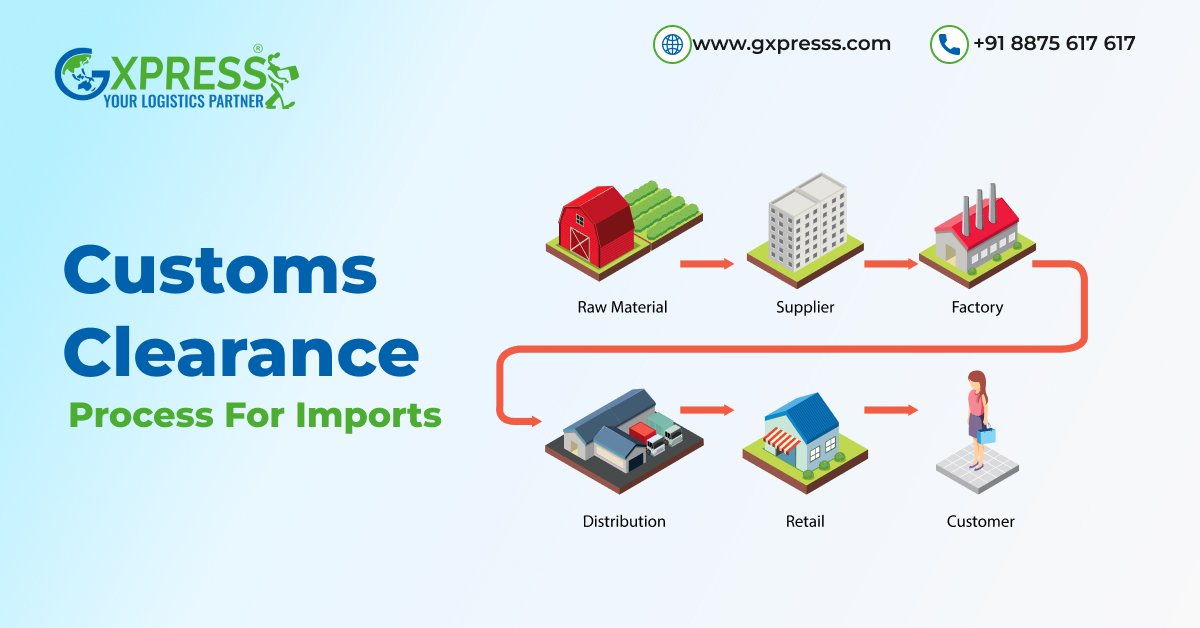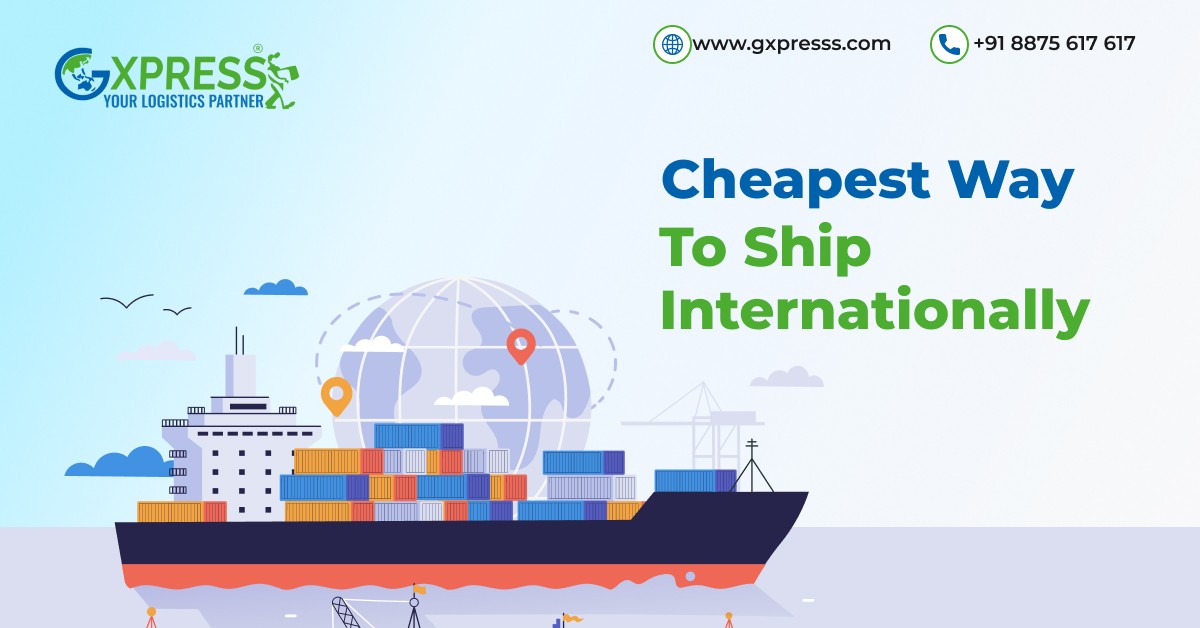April 18, 2025Freight8 min readBy Admin
DDP Explained: What It Means in Shipping and Logistics
Understanding Delivered Duty Paid (DDP) and its implications for international shipping and trade. Learn about responsibilities, benefits, and considerations.

DDP is more than just an Incoterm; it’s a trust-building tool. But like most good things, DDP comes with both benefits and responsibilities. Let’s break it down.
This comprehensive guide explains DDP's implications for sellers and buyers. We explore the advantages and challenges of DDP shipping, cost considerations, and compliance requirements. The guide also covers risk management, documentation requirements, and best practices for DDP shipments.
What is DDP in Shipping?
DDP might sound like something complicated when you don't know what it is. But it's just an Incoterm (International Commercial Terms) used by traders. Delivered Duty Paid (DDP) is basically like a label that makes it official that the seller will be taking care of customs, taxes, delivery, etc. And the buyer can just sit back and wait for it to arrive. To put it simply, DDP implies that the seller is in charge of the complete delivery of the goods to the buyer’s place: handling the entire expenses, the risks, and the documentation. Here’s what that includes:- Export duties in the seller’s country
- Freight charges (air, sea, or land transport)
- Import duties and taxes in the buyer’s country
- Customs clearance at both ends
- Delivery to the buyer’s doorstep
Documents Required for DDP Shipments
Because DDP involves cross-border responsibilities, documentation is crucial:Commercial Invoice
A detailed bill that the seller issues, which indicates the product description, the value, and the payment terms.Packing List
Basically, this is your cheat sheet for what’s in the boxes, how many there are, and how big they are. Don’t skip it unless you like surprises at customs.Bill of Lading / Air Waybill
Think of this as the golden ticket from your shipper (boat or plane) that says it belongs to you. Without it, your goods might not be so safe.Certificate of Origin
Customs care a lot about where your goods were made. This certificate proves it: no proof needed at the border.Import Licenses
Depending on what you’re shipping (and where it’s going), you might need special permission slips. Bureaucracy needs everything recorded through paperwork.Duty & Tax Payment Receipts
Proof you’ve paid the duties, VAT, or GST. It’s like a receipt for surviving the taxes.Insurance Documents (optional)
Covers you if your cargo goes missing or takes damage en route. Better safe than sorry.DDP’s Implications for Sellers and Buyers
For Sellers:
- Control & Responsibility – You’re responsible for the entire process until the buyer receives the product.
- Competitive Advantage – Offering DDP can make your product more attractive in international markets because buyers love convenience.
- Financial Burden – You need to calculate duties, taxes, and logistics charges accurately; otherwise, profit margins shrink.
For Buyers:
- Hassle-Free Experience – No worrying about customs, tax payments, or unexpected bills.
- Convenience – No sweating over customs forms, surprise taxes, or a random bill hitting your inbox three weeks later.
- Forward Pricing – What you see is what you pay. No sneaky fees hiding in the shadows.
- Less Control – The downside is that you don't get to have a say in how the seller handles the shipping. They can choose whatever freight forwarder or customs broker they prefer.
Benefits of DDP Shipping
1. Customer Satisfaction
Buyers receive goods without lifting a finger. No surprise fees = happy customers.2. Simplified International Trade
Sellers can expand into global markets more confidently, breaking down one of the biggest barriers—import complications.3. Stronger Relationships
Offering DDP often positions sellers as premium, reliable suppliers who value customer convenience.4. Streamlined Delivery
Fewer handovers reduce the risk of confusion during customs clearance.5. Predictable Costs
Everything is bundled into one price, which helps both parties budget effectively.Challenges of DDP Shipping
Of course, DDP isn’t all sunshine. Here are the roadblocks sellers often face:1. High Risk for Sellers
Any delay in customs clearance or miscalculation in duties becomes the seller’s headache.2. Complex Regulations
Each country has its own tax structures, banned goods, and documentation requirements. A missed detail can stall the shipment.3. Cash Flow Strain
Sellers must pay duties and taxes upfront, which can tie up working capital.4. Limited Local Knowledge
If you don’t understand the destination country’s import laws, you risk penalties or shipment returns.5. Responsibility for Delays
Even if customs or the carrier causes delays, the buyer blames the seller.DDP Shipment Risk Management
Sellers who offer DDP can reduce risks with smart planning:Research Regulations
Understand customs policies of target markets before committing to DDP.Pick Forwarders Who Actually Know Logistics
A veteran shipping partner will save your cargo when customs gets tough. Seriously, you do not want to handle all the paperwork alone.Don’t Skip Insurance
Cargo goes missing, boxes get crushed, and sometimes things just vanish into the shipping void. Just pay for the insurance. It's much safer that way.Calculate The Duties
Use an online tariff calculator or chat with a pro. Underestimating customs fees is a rookie mistake that’ll eat your profits alive.Pad Your Prices
A surprise fee can always pop up: rise in taxes, currency nose-dives, you name it. Build in some wiggle room so you’re not scrambling later.Keep Buyers in the Loop
Be upfront about how long things take and what could go sideways. Set real expectations so you don't disappoint your customers with false expectations.Best Practices for DDP Shipments
Want to make DDP work smoothly? Follow these best practices:1. Choose the Right Products
DDP works best for goods that don’t face heavy restrictions or high duties.2. Partner with Local Agents
Having a customs broker or partner in the destination country speeds up clearance.3. Keep Documents Ready
Missing paperwork is the number one cause of DDP delays.4. Price Strategically
Don’t absorb all costs blindly. Factor them into your final product price.5. Communicate Clearly
Ensure buyers understand what DDP covers and doesn’t (e.g., delivery inside a building vs. just curbside).6. Start Small
Test DDP in a few countries before scaling globally, so you learn the ropes without risking too much.Conclusion
Delivered Duty Paid (DDP) is a promise, as well as a responsibility. For sellers, it represents an opportunity to gain the trust of foreign buyers by providing a truly effortless service. For buyers, it is the assurance that the products will be delivered without additional charges or administrative nightmares. However, DDP is not for everyone. It requires a thorough understanding of customs laws, reliable logistics partners, and prudent financial management. On the contrary, the sellers who achieve this mastery get to enjoy the competitive advantage. So, thinking about taking your business worldwide or just wanna avoid getting stuck with surprise charges from your supplier? Don’t ignore DDP. It’s not just a boring trade rule; it’s a promise that your cargo will arrive without you having to do anything. A good logistics partner like Gxpress can help you with DDP shipping.Frequently Asked Questions (FAQs)
Q1. What does DDP incoterm mean?
DDP (Delivered Duty Paid) indicates that the seller is in charge of delivering the goods to the buyer’s place, including the entire shipping costs, customs, and taxes.Q2. What is the full form of DDP?
DDP is the short form of Delivered Duty Paid.Q3. Who pays duty in DDP?
The seller is the one who pays for all the import duties, customs charges, and taxes on behalf of the buyer.Q4. What is the purpose of DDP?
The goal of DDP is to make international trading easier by providing buyers with a delivery solution that is all-inclusive and without any trouble.Q5. What are the risks of DDP?
The seller is the one responsible for most of the troubles, such as customs delays, wrong calculated duties, or added costs, until the goods are located at the buyer’s place.Q6. Is GST included in DDP?
Yes, if the buyer is under DDP, all taxes that are applicable, which are GST or VAT in the buyer’s country, are the responsibility of the seller and included in the final price.Share this article:



